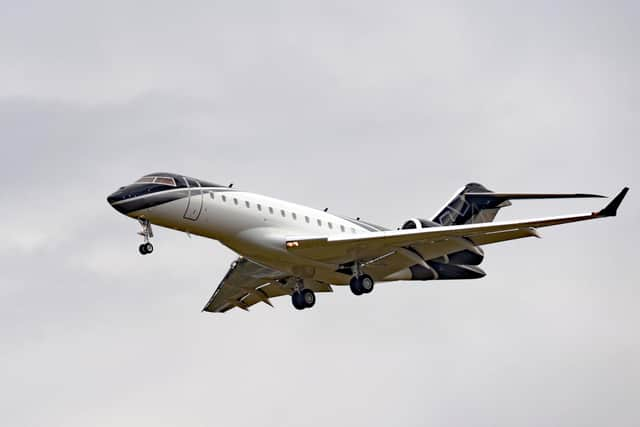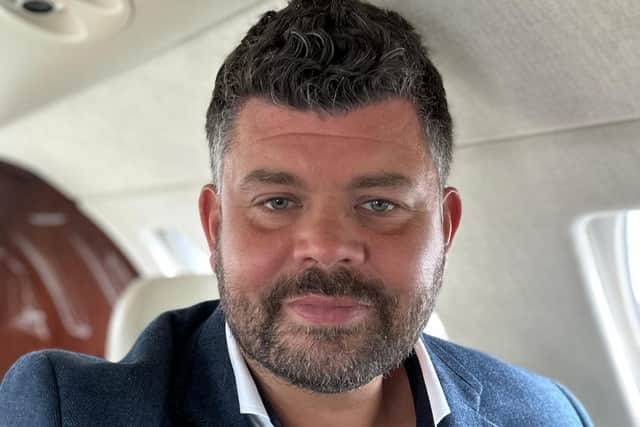Can private air travel become sustainable? - Matt Cheshire
It is a slow burn however due to the availability of Sustainable Aviation Fuel (SAF).
It is not available at all airports, and even at an airport the size of Heathrow, which is the largest global user of SAF, it is only used on 0.5 per cent of their flights.
Advertisement
Hide AdAdvertisement
Hide AdAs flying is one of the largest contributors to carbon emissions, we now offer the opportunity to ‘fly neutral’ and offset the omissions from your flight, so even if SAF is not available in a particular airport, you can offset it by contributing to the costs for another flight.


We also offer ‘positive offset’ donating an additional 50 per cent, and ‘double neutral’ effectively offsetting both your own and another flight.
People are becoming much more conscious about the impact of their choice of travel, and when offsetting a short flight of only 90 minutes only adds 0.3 per cent to the bill, it is a realistic option for people to now choose.
Moving forwards is it realistic to include the same approach to scheduled flights?
Advertisement
Hide AdAdvertisement
Hide AdWhy not add a ‘green premium’ for the consumer to choose to pay, in the same way you have the option for extra leg room seats or the standard of class you fly.


Then it is down to each individual to make their own personal choice.
With the government target of three-quarters of flights to use SAF by 2050 however, much more progress is needed in this field.
The upcoming European Business Aviation Conference (EBACE) at Geneva this week will be key to looking at zero carbon initiatives moving forwards.
Advertisement
Hide AdAdvertisement
Hide AdManufacturers, operators and business users gather to hear from industry leaders about next-generation propulsion systems, advanced air mobility, carbon-reduction advances and other sustainability initiatives.
Earlier this year Bell 505 were the first to fly a helicopter using 100 per cent SAF fuel, so following this trial, we expect other manufacturers and operators to make improvements in helicopter flights too.
How else can we contribute to improvements in this form of transport?
As a company we always source flights for clients from the nearest available airport so the distance from A-B is kept to a minimum. We also source flights from routes that have taken a client one way and are then empty on the return route.
Advertisement
Hide AdAdvertisement
Hide AdWe all need to do our bit to make flying more sustainable, because as one of the safest and quickest forms of transport, it is here to stay.
Whilst a significant amount of our business involves transport for celebrities and bands, this has also changed since the pandemic, and business use of flying is becoming much more prevalent.
Companies are now more conscious about safety and risks of Covid on a chartered flight, so are choosing lower risk options and private flights. To address the carbon issues relating to these changes, it is a board room decision to encompass offsetting the emissions – but that is exactly why we provide these options. The choice is now there, and hopefully we will see much greater use of SAF moving forwards.
Matt Cheshire is MD of The Needs Group